Today we were informed by Razi International Medical Journal that the paper ‘Management capacity in the Ministry of Public Health (MoPH) Afghanistan: Political and socio-cultural issues’ [1] is finally out in print (i.e. online). I wrote a BU Research Blog (see copy of this here!) on May 1st to announce that this paper had accepted by the editors in late April. It has taken another four months at the editorial office to sort the publication details. 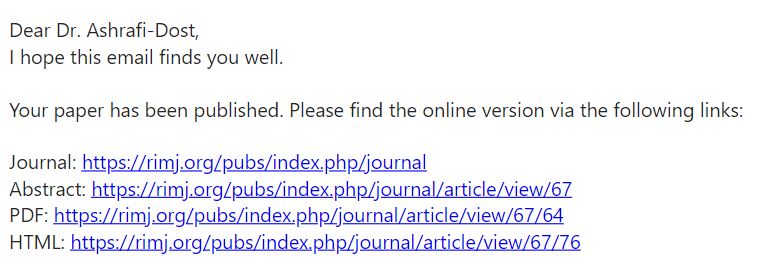
The lead author is Dr. Shaqaieq Ashrafi Dost, and this interesting paper is part of the dissemination of her Bournemouth University PhD research. The paper is in an Open Access journal and hence freely available online to read.
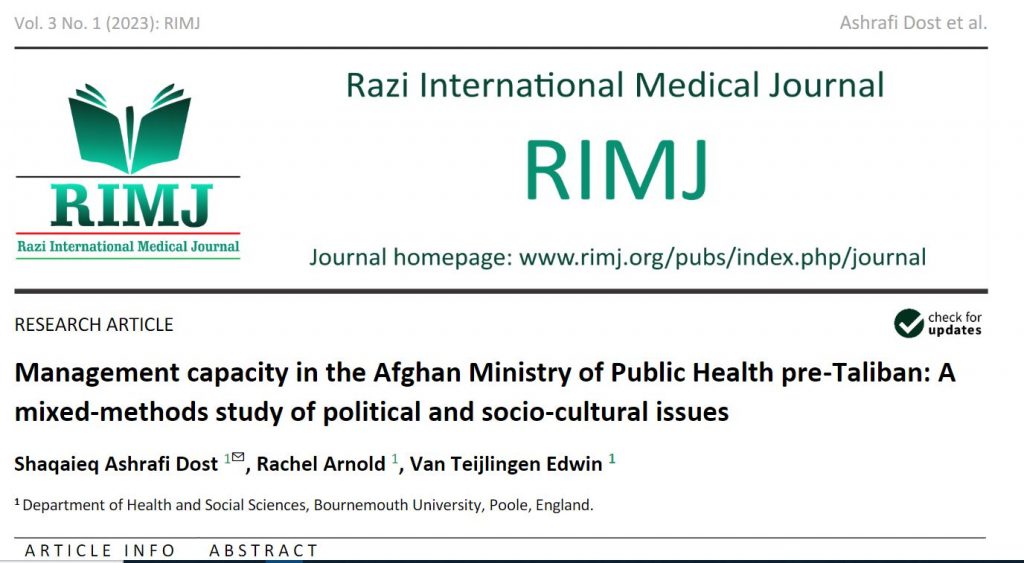
Prof. Edwin van Teijlingen
Centre for Midwifery & Women’s Health (CMWH)

References:
-
Ashrafi Dost, S., Arnold, R., van Teijlingen, E. (2023). Management capacity in theAfghan Ministry of Public Health pre-Taliban: A mixed-methods study of political and socio-cultural issues. Razi International Medical Journal, 3(1): 9-18. DOI:10.56101/rimj.v3i1.67
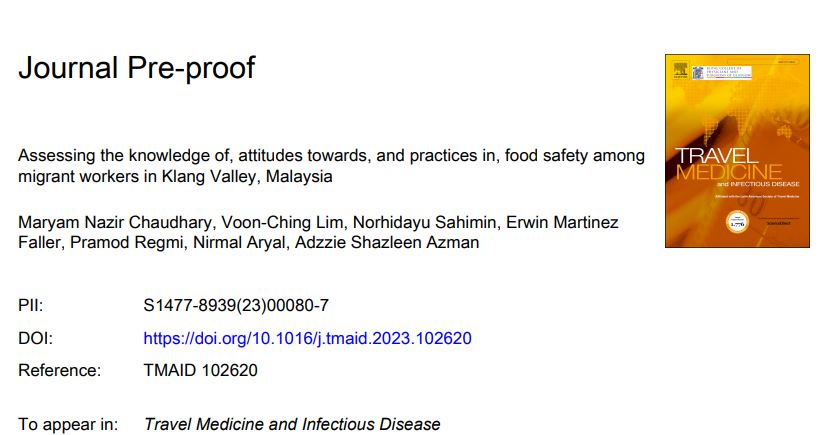
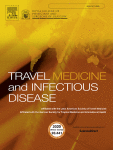
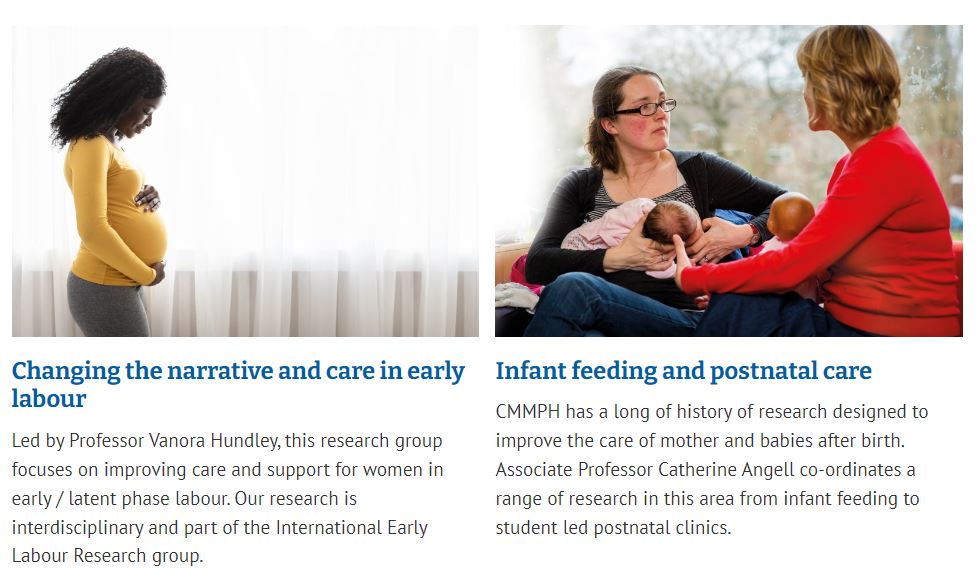
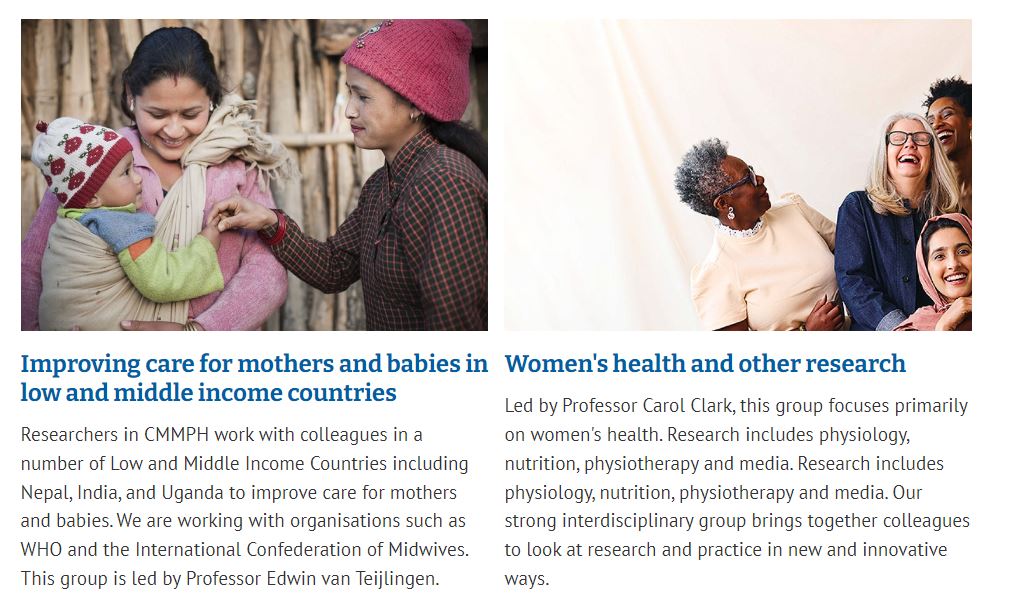

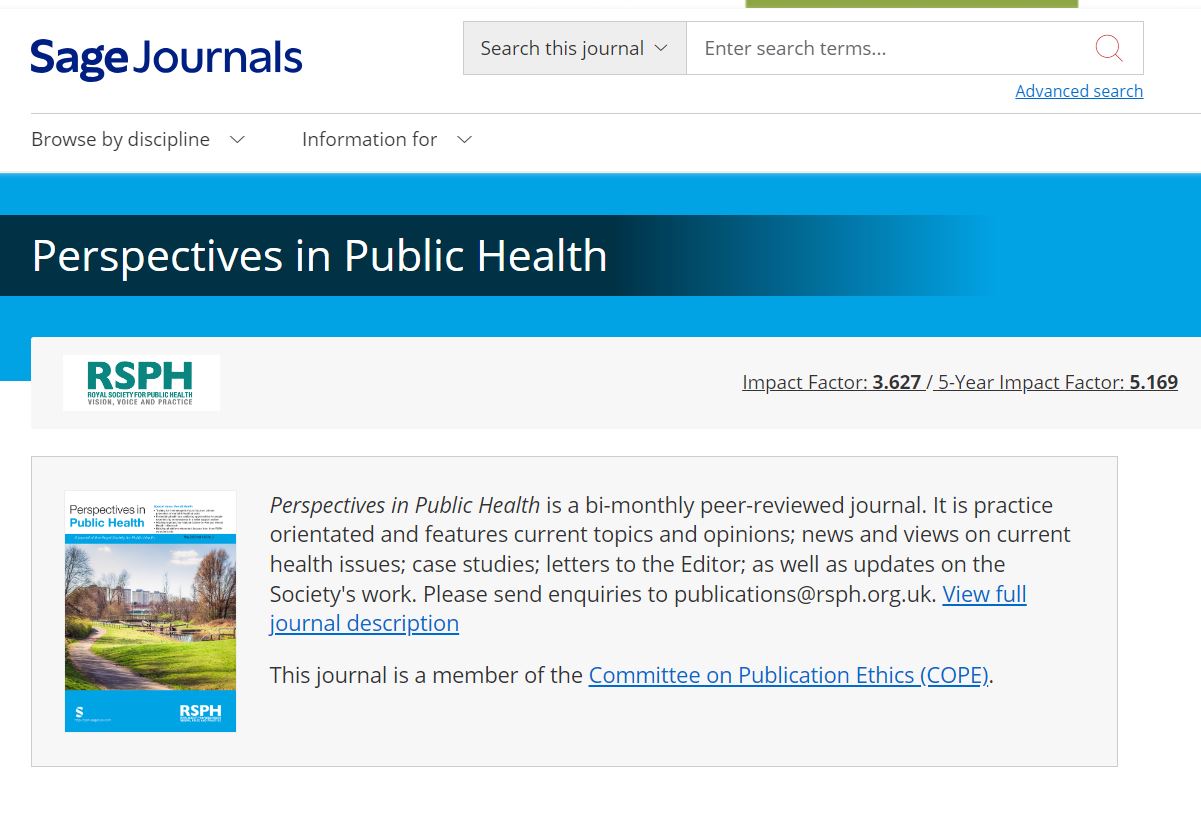
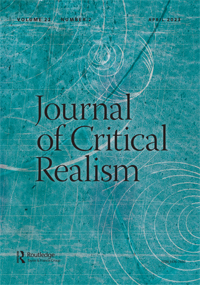
 Last we took a new step into the academic publishing by submitting a paper to Qeios. This Open Access journal publishes papers for free, more or less immediately and after the paper has appeared online peer-reviewers are being invited. The paper ‘
Last we took a new step into the academic publishing by submitting a paper to Qeios. This Open Access journal publishes papers for free, more or less immediately and after the paper has appeared online peer-reviewers are being invited. The paper ‘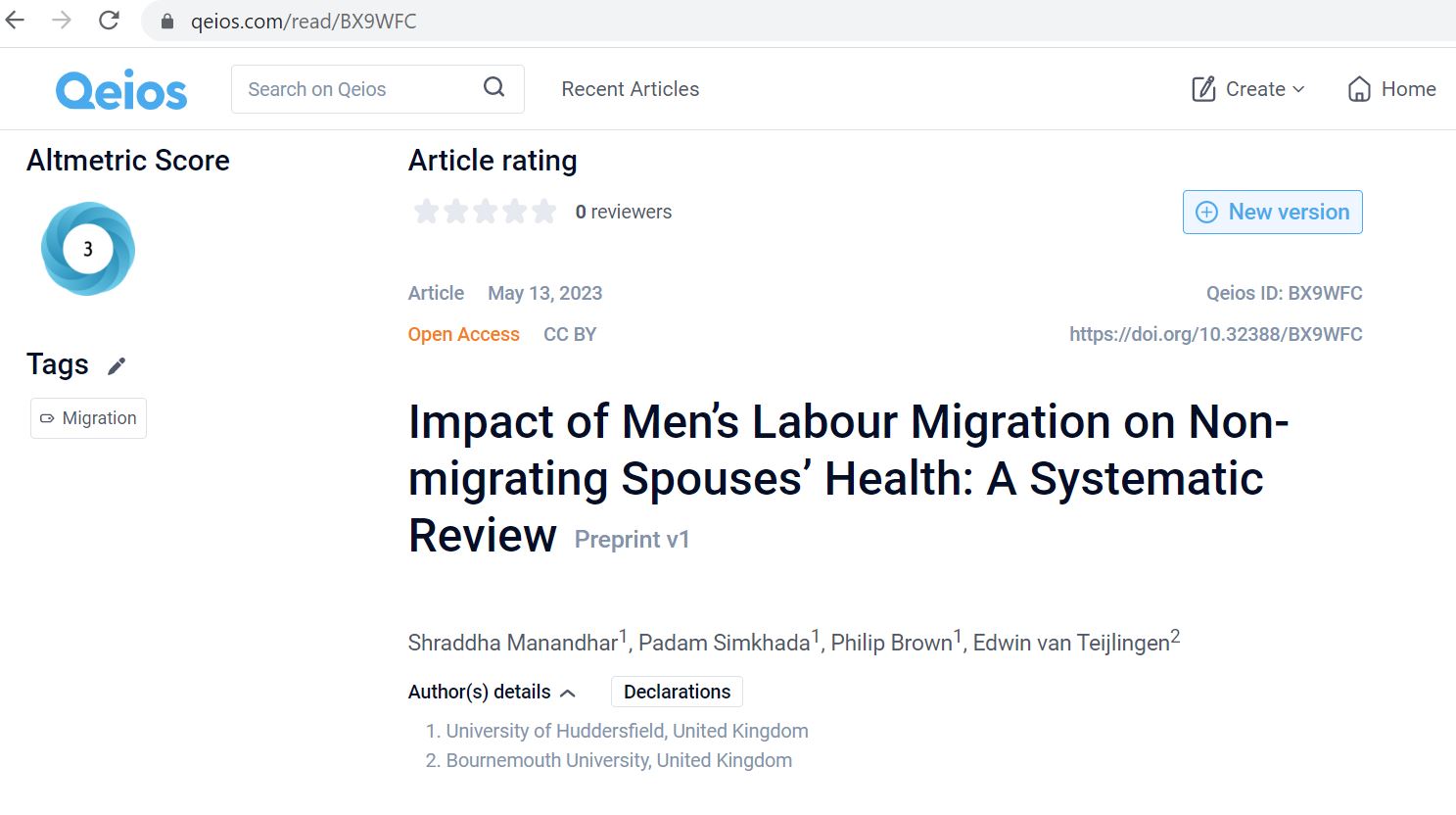


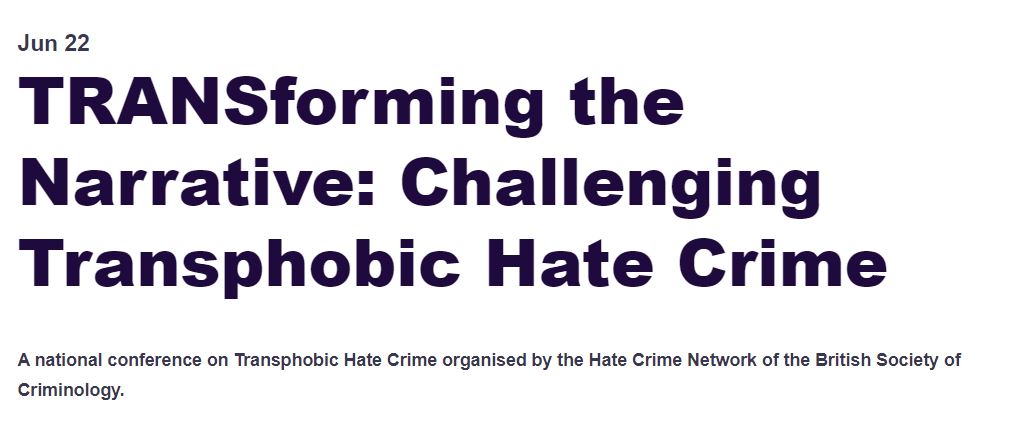
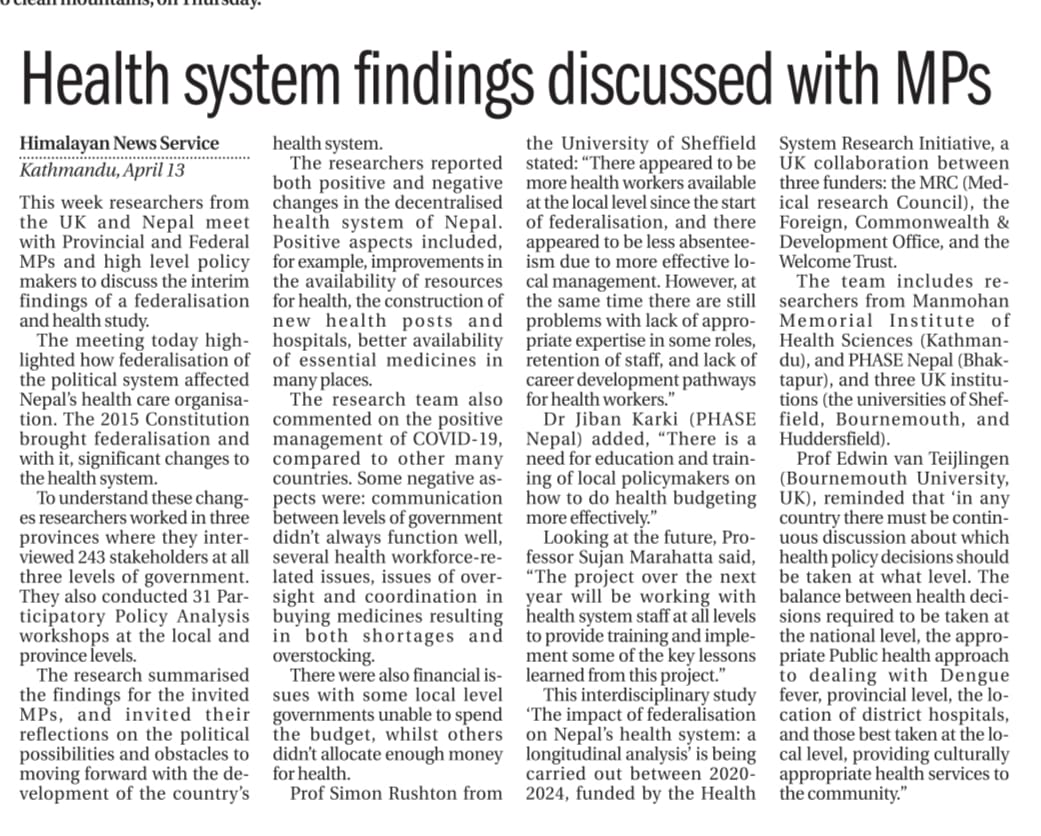
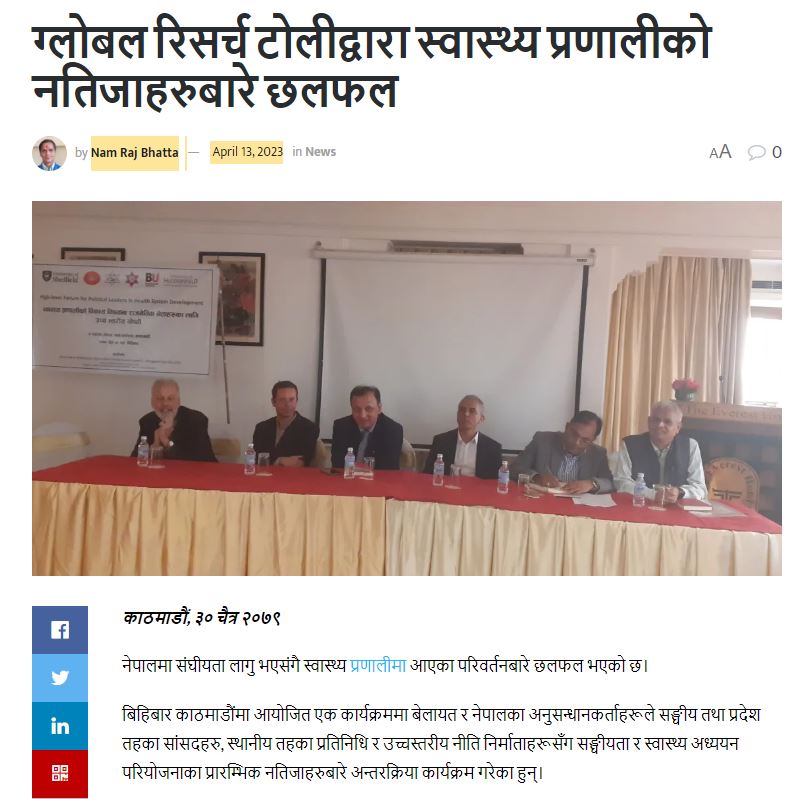
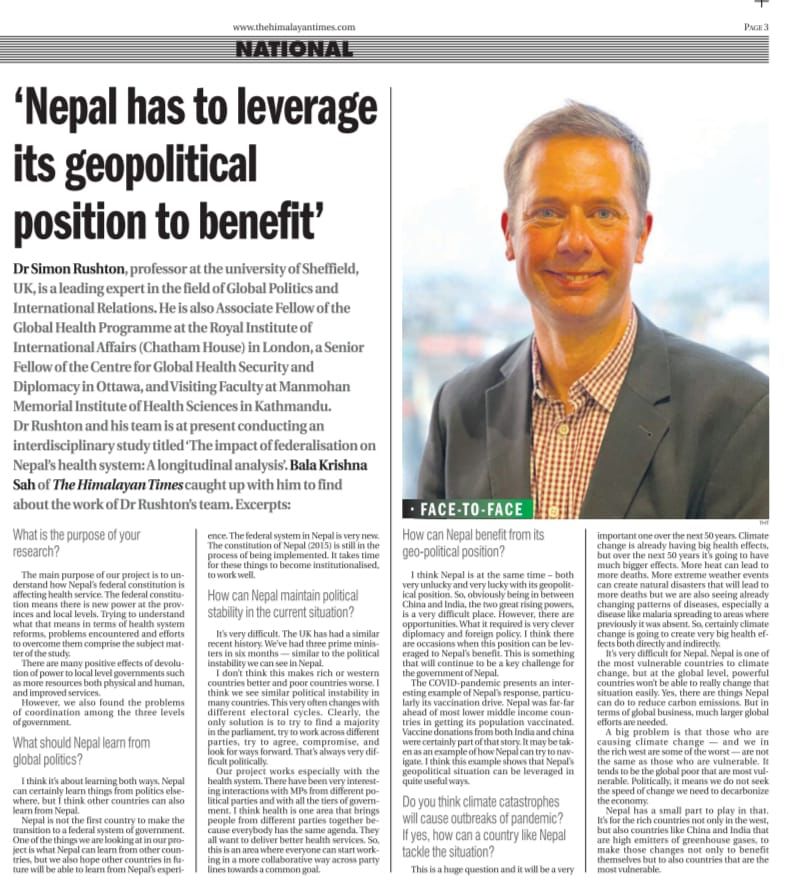
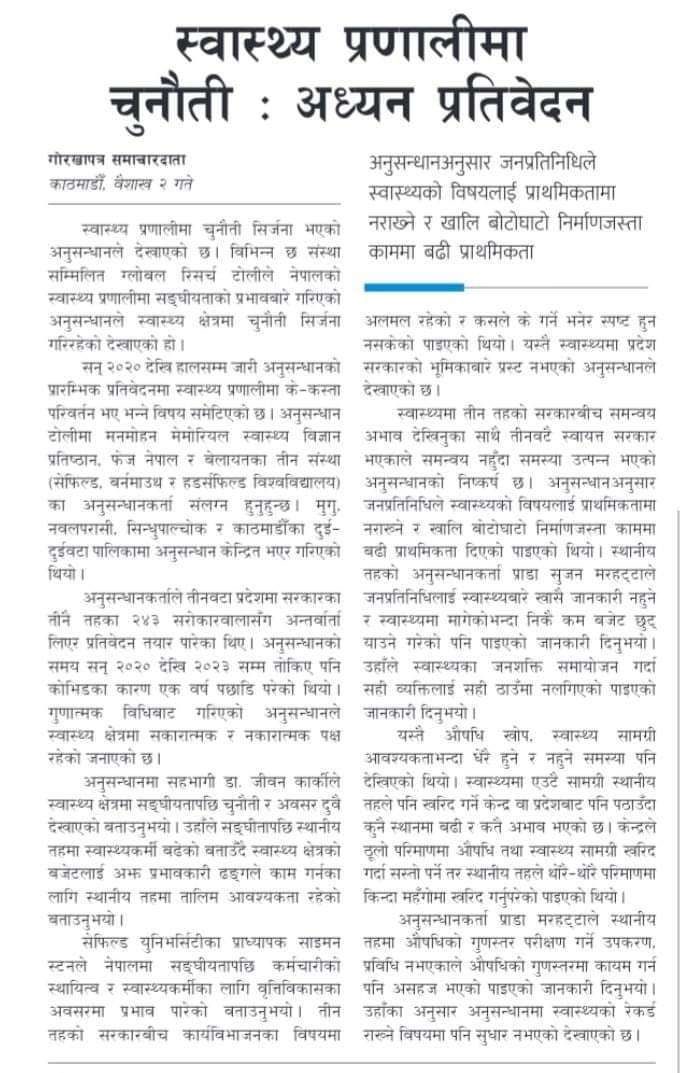
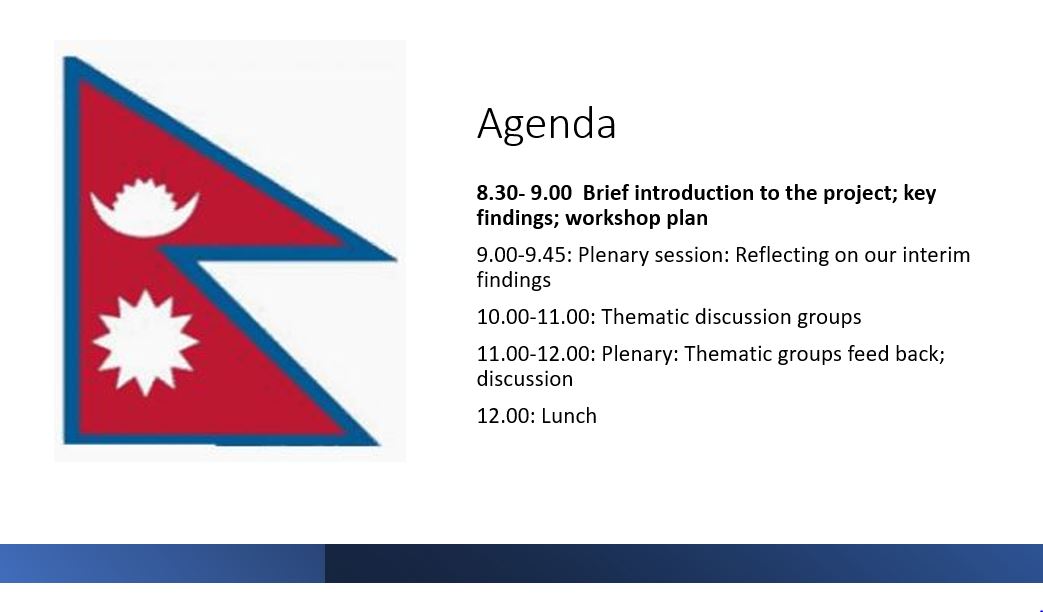
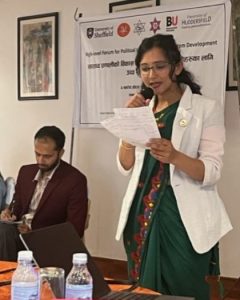
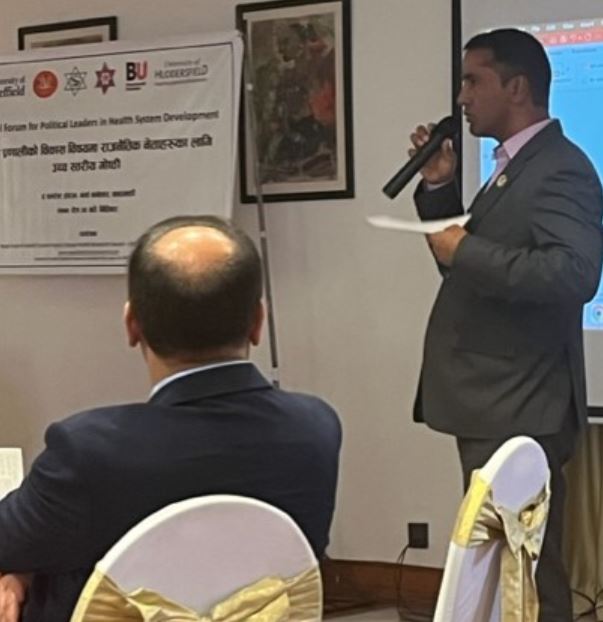
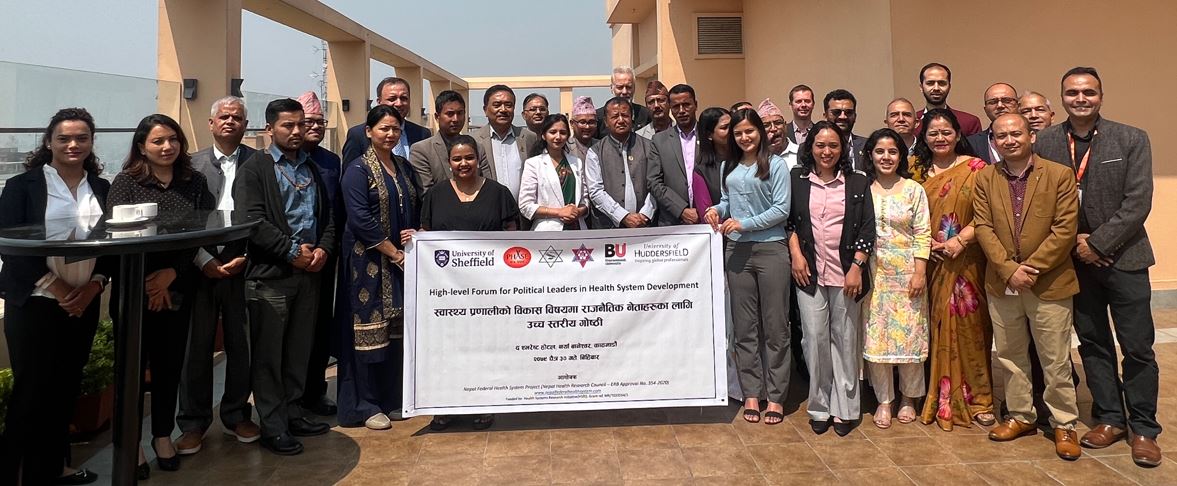
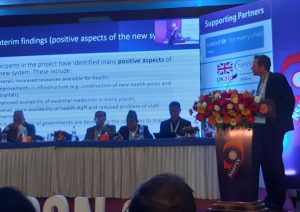
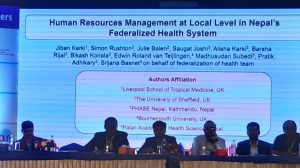
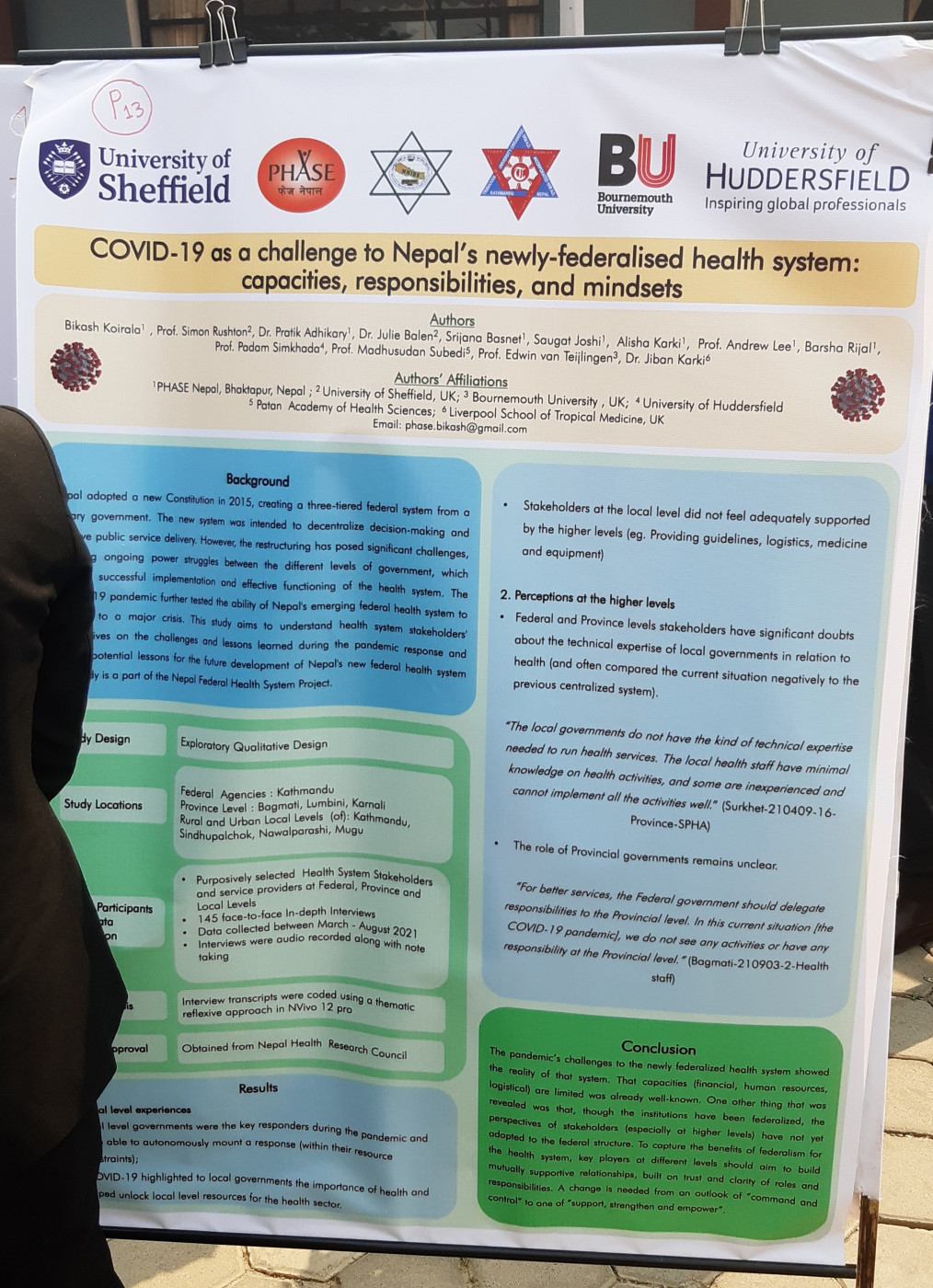
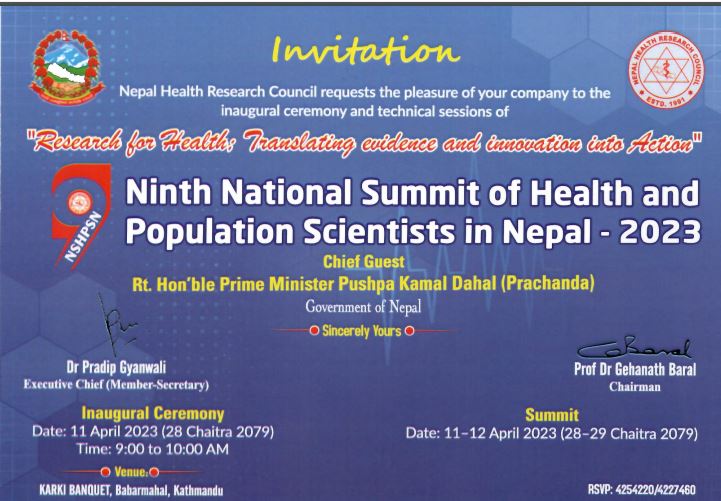
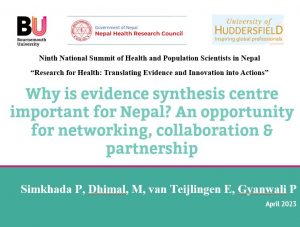
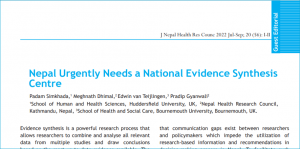


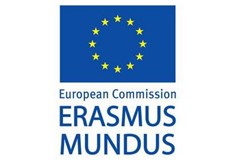
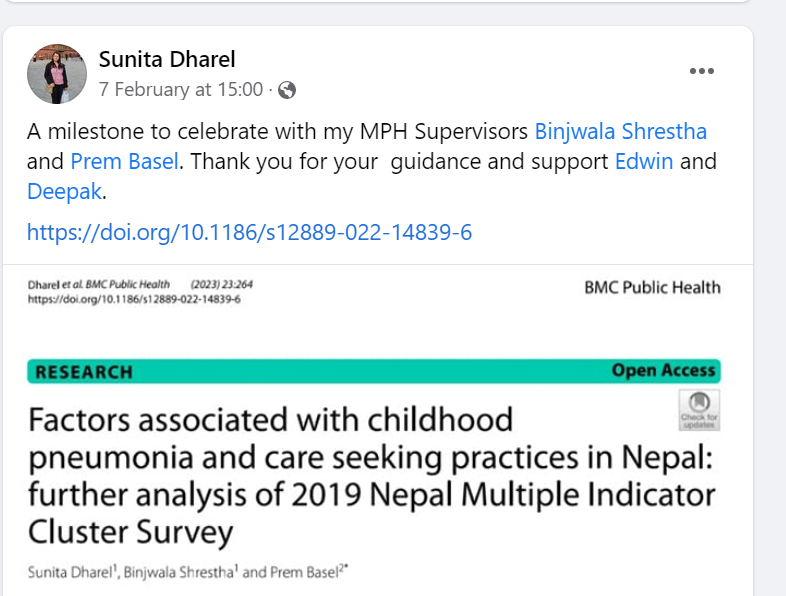



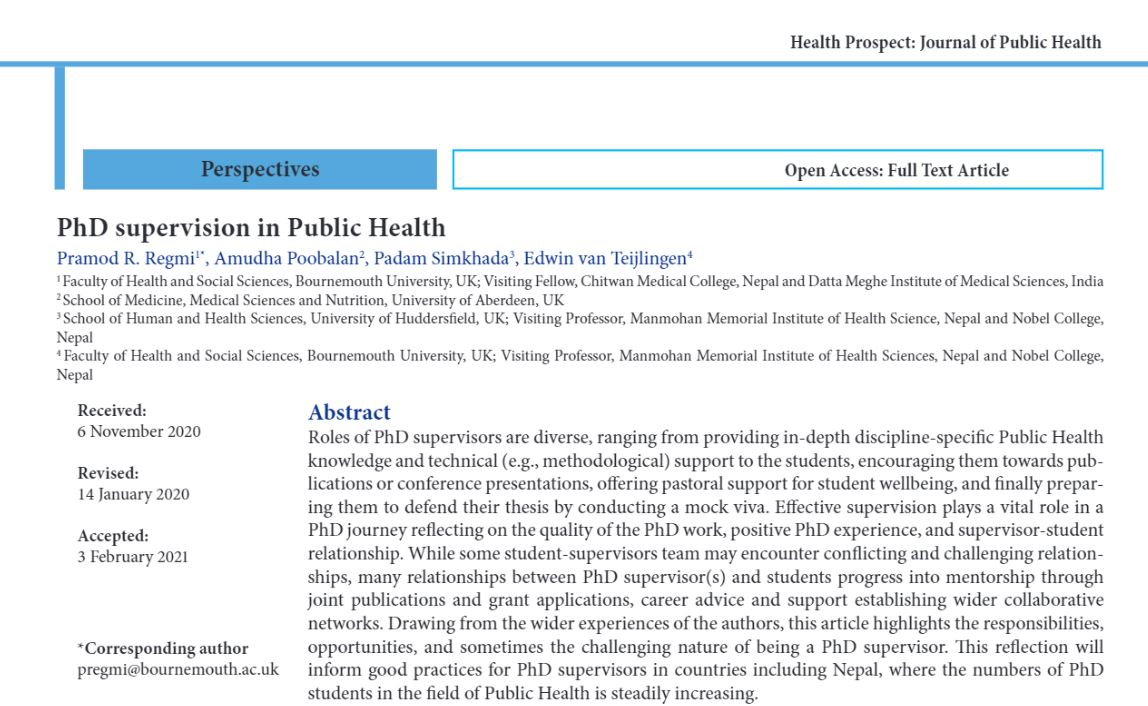

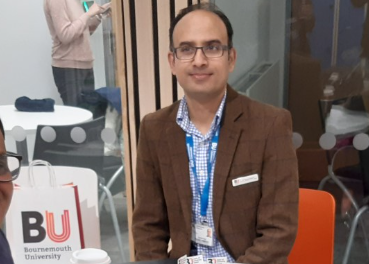
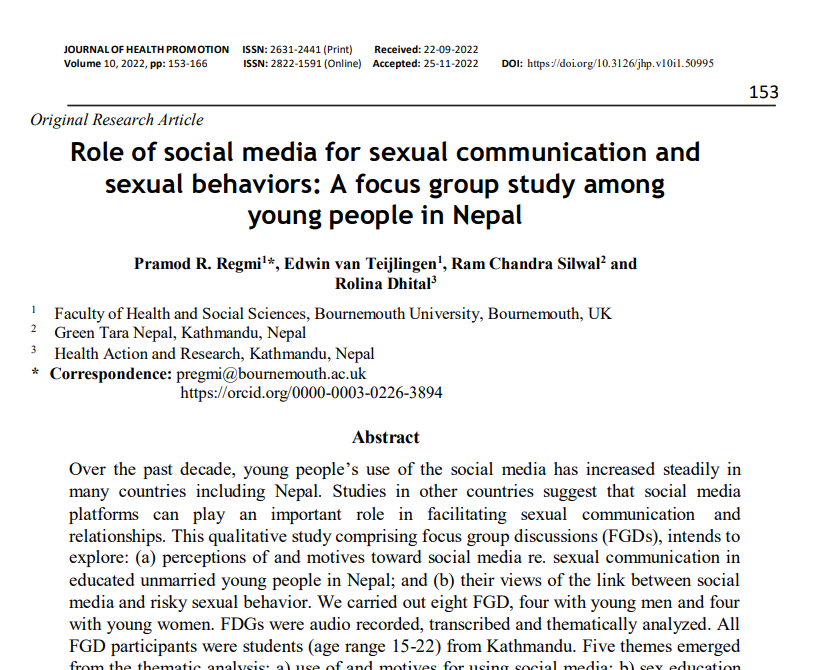
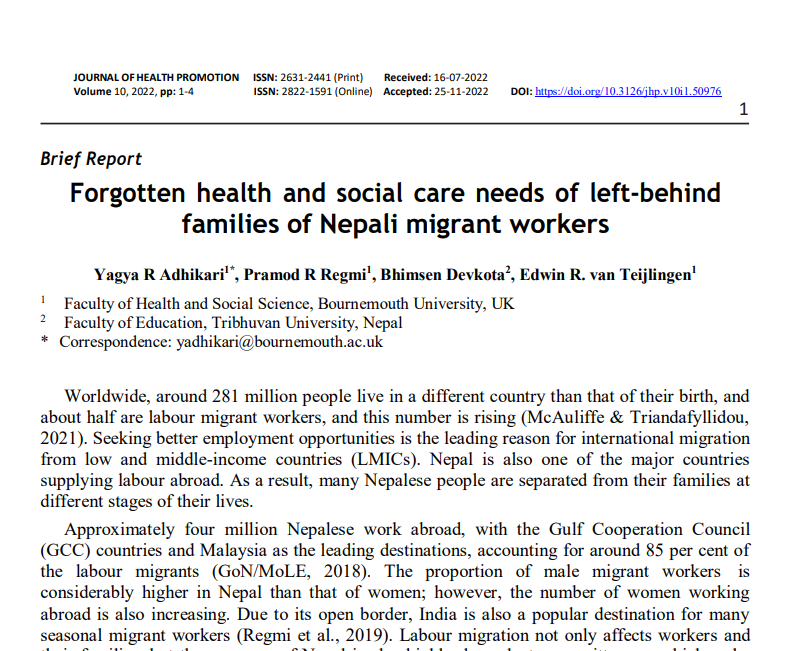











 Second NIHR MIHERC meeting in Bournemouth this week
Second NIHR MIHERC meeting in Bournemouth this week Dr. Ashraf cited on ‘Modest Fashion’ in The Guardian
Dr. Ashraf cited on ‘Modest Fashion’ in The Guardian NIHR-funded research launches website
NIHR-funded research launches website MSCA Postdoctoral Fellowships 2025 Call
MSCA Postdoctoral Fellowships 2025 Call ERC Advanced Grant 2025 Webinar
ERC Advanced Grant 2025 Webinar Horizon Europe Work Programme 2025 Published
Horizon Europe Work Programme 2025 Published Horizon Europe 2025 Work Programme pre-Published
Horizon Europe 2025 Work Programme pre-Published Update on UKRO services
Update on UKRO services European research project exploring use of ‘virtual twins’ to better manage metabolic associated fatty liver disease
European research project exploring use of ‘virtual twins’ to better manage metabolic associated fatty liver disease